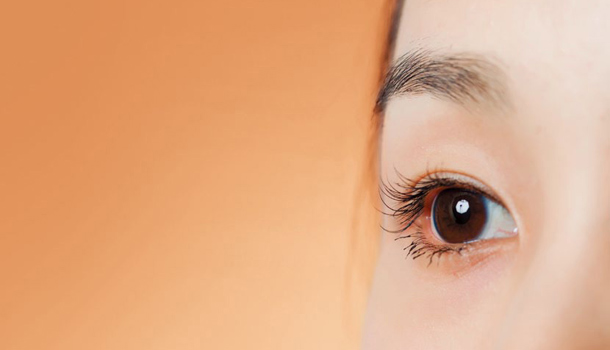Does drinking coffee really protect your eyes? One more reason to drink coffee!
Professional coffee knowledge exchange more coffee bean information please follow the coffee workshop (Wechat official account cafe_style)
I don't know how many coffee lovers wake up every morning to wake up with a cup of coffee and then a cup of afternoon tea as a snack. Sometimes they have to rely on coffee to stay up late and work overtime. It's hard to imagine how to spend a day without coffee.
Recent studies have suggested that drinking coffee can protect the eyes, but it can also cause high intraocular pressure (the higher the intraocular pressure, the greater the risk of glaucoma). After all, can drinking coffee really protect your eyes?

Is it good for your eyes to drink coffee?
There are three ingredients in coffee that are good for the eyes: nicotinic acid, chlorogenic acid and ferulic acid. The reason why it is said to have the effect of protecting eyes is mainly because it contains nicotinic acid, chlorogenic acid, ferulic acid and other main ingredients, which have different benefits to the human body as follows:
1. Nicotinic acid
The nicotinic acid contained in coffee can help maintain the normal metabolism of human energy, protect blood vessels, improve blood circulation, and prevent arteriosclerosis, so it can protect the skin, nervous system and mucous membrane, and the content of black coffee is more abundant. Once the lack of fear will cause nerve cell damage, affect vision, so it must be an appropriate amount of supply.
two。 Chlorogenic acid:
Chlorogenic acid is an antioxidant in coffee. According to studies, unrefined coffee has an average of only 1% caffeine, but contains 7% to 9% antioxidants such as chlorogenic acid. Animal experiments have found that it can reduce apoptosis of retinal nerve cells caused by hypoxia and excessive nitric oxide, improve the balance of the redox system, and even balance the autonomic nervous system.
3. Ferulic acid:
The roasted coffee contains ferulic acid, which is the same as ferulic acid in traditional Chinese medicine such as Chuanxiong and Angelica sinensis. According to scholars, ferulic acid can be used to prevent and treat retinal diseases such as eye stroke and age-related macular degeneration. Because this ingredient has anti-cellular oxidative pressure, it can improve ischemic problems, has antioxidant and free radical scavenging effects, can protect cell membranes from oxidation and inhibit platelet aggregation and thrombosis.
In the Song Dynasty, "Chuanxiong Cha Tiao San", a famous prescription recorded in Taiping Huimin prescription, contains Chuanxiong and tea, as well as ferulic acid and caffeine. To treat chronic migraine and even trigeminal neuralgia, sinusitis, allergic rhinitis and other diseases.

Can drinking coffee cause high intraocular pressure?
Coffee's controversial ingredient for the eyes: caffeine. It has been reported that the intraocular pressure (IOP) of drinking coffee rises sharply after 10:00 at night. Studies have shown that the IOP of sleeping at night is greater than 25 mm Hg, and the average dose of caffeine is above 180mg (about 200c.c.) Will increase the intraocular pressure, but most people actually do not have to worry, because most people will not drink coffee at 10:00 in the evening, if you are still worried about the increase in intraocular pressure at night, you can use a pillow to raise the head about 15 degrees above, you can reduce the intraocular pressure.
However, caffeine can stimulate lacrimal gland secretion, but also can increase saliva, digestive juice and other secretions, if patients with xerophthalmia, as long as the right amount of coffee at the right time, is very beneficial.

Have fun drinking coffee, don't be nervous! Unless you...
Some scholars have found that, in fact, drinking water at night will cause an increase in intraocular pressure, even higher than drinking coffee, because coffee contains nicotinic acid, chlorogenic acid, ferulic acid, polyphenols and other ingredients, these all have the ability of antioxidation and the function of protecting blood vessels, and can treat retinal ischemia, age-related macular disease, retinal nerve inflammation and the loss of retinal ganglion cells, which are often more helpful to the eyes.
In addition, we all know that tea also contains caffeine, but in fact, among tea drinkers, even fewer people suffer from glaucoma, so as long as you pay attention to maintaining a normal weight and not drinking more than three cups of coffee a day. When buying coffee, consider light-roasted coffee (high in chlorogenic acid), increase the amount of fruits and vegetables in your diet, and eat more foods rich in antioxidant vitamins A, C and E If you have an eye disease, seek the assistance of an ophthalmologist as soon as possible.
Most importantly, if you belong to normal tension glaucoma (Normal-tension glaucoma, NTG) patients, try not to drink coffee, because the IOP measurements are in the normal range, but still suffer from glaucoma and even optic nerve injury, can not bear any stimulation, must not be ignored.
Important Notice :
前街咖啡 FrontStreet Coffee has moved to new addredd:
FrontStreet Coffee Address: 315,Donghua East Road,GuangZhou
Tel:020 38364473
- Prev

How to judge the extraction state of coffee by its taste? What is good coffee?
Professional coffee knowledge exchange more coffee bean information please pay attention to the coffee workshop (Wechat official account cafe_style) extraction may be the most important aspect of coffee brewing, but it is also one of the least understood by baristas. Extraction is everything. Without extraction, you can't even taste a cup of coffee. The simplest but not 100% accurate definition of coffee extraction: coffee extraction
- Next

Advantages and disadvantages of drinking coffee on an empty stomach what about nausea of drinking coffee on an empty stomach
Professional coffee knowledge exchange more coffee bean information Please pay attention to the coffee workshop (Wechat official account cafe_style) Coffee has the function of refreshing and helping digestion, so it is a very popular drink for office workers. Then how about coffee on an empty stomach in the morning? How about drinking coffee on an empty stomach in the morning? Drinking coffee in the morning does help to clear your head and refresh yourself, but you have to have breakfast before
Related
- How did the Salvadoran coffee industry develop in Central America?
- What exactly does the golden cup extraction of coffee mean?
- The Origin of Coffee flower
- [2023 Starbucks World Earth Day] there are more meaningful things besides free Starbucks coffee!
- What kind of coffee is there in Spain? 9 Flavors of Spanish Coffee
- Aromatic African coffee| Kenya's coffee culture and historical production area
- Liberica Coffee Bean knowledge: the characteristics of Liberian Coffee beans of the three original species of Coffee beans
- The origin and formula of Spanish latte introduces the taste characteristics of Bombon coffee in Valencia, Spain.
- How to adjust the solution of over-extracted coffee
- What is the tasting period of coffee beans? What is the period of coffee and beans? How should coffee wake up and raise beans?

